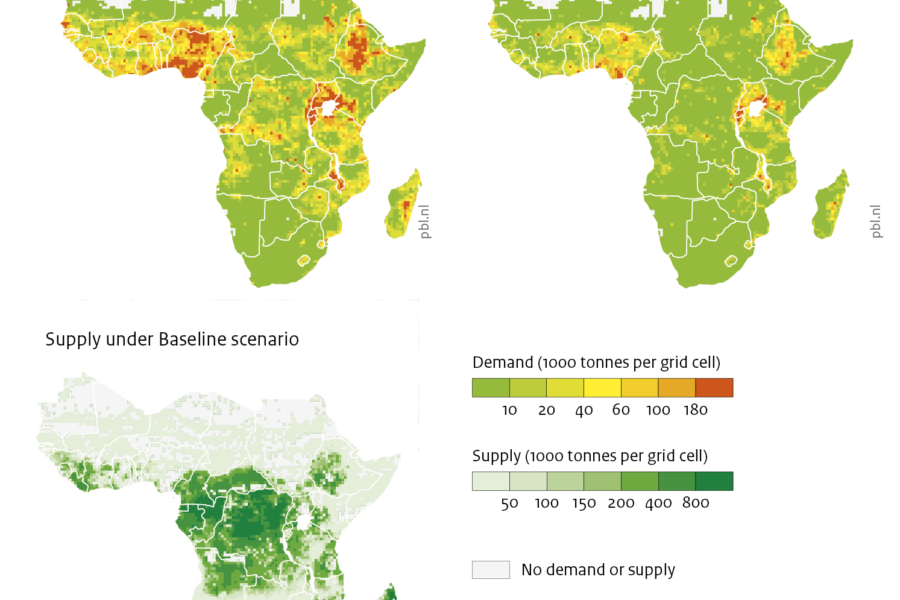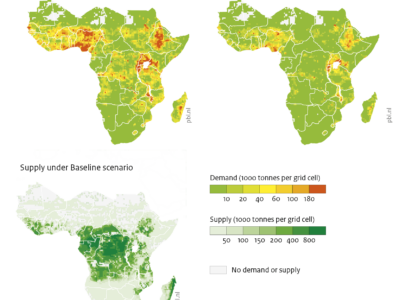More than 700 million people in Sub-Saharan Africa cook on open fires or inefficient cookstoves with traditional biomass (wood or charcoal). This results in serious health effects; each year, between 150,000 and 250,000 children under the age of 5 in Sub-Saharan Africa die as a result of household air pollution. This study shows that a transition towards clean cooking not only reduces child mortality, but can also save money and produce positive effects for biodiversity and climate.
The scientific publication has been frequently cited. The report served for several international organizations, including the Dutch international cooperation policy and the Netherlands Enterprise Agency.
The scenarios were made in: 2018
The scenarios look out to: 2030

